The Best Cattle Breeds for Small Farms
Raising cattle on a small farm presents unique challenges when it comes to choosing the right breed. Small farmers must consider factors like the breed’s size, temperament, hardiness, and purpose in order to select cattle that are well-suited for thriving in a small-scale, pasture-based system.
Choosing cattle with an ideal frame, disposition, and ability to convert grass to milk or meat is key to successfully operating a small cattle farm.
Certain cattle breeds are better adapted for small farm life due to their moderate size, docile temperament, maternal traits, and grazing efficiency. Heritage and traditional breeds like Dexter, Jersey, Hereford, and Highland cattle possess many positive traits that enable them to flourish on small farms utilizing rotational grazing and other sustainable practices.
Here are some of the top cattle breeds that are well-suited for raising on a small farm:
1. Dexter Cattle
The Dexter cattle breed is a dual-purpose animal raised for both milk and meat production. They are one of the smallest cattle breeds, with cows weighing up to 750 pounds and bulls under 1,000 pounds. Dexters are an efficient grazing breed that can thrive on marginal pastures. They produce rich milk and finely marbled beef.
Their small size makes them easy to handle. Dexter cattle are known for their docility and adaptability, making them an excellent choice for small-scale family farms.
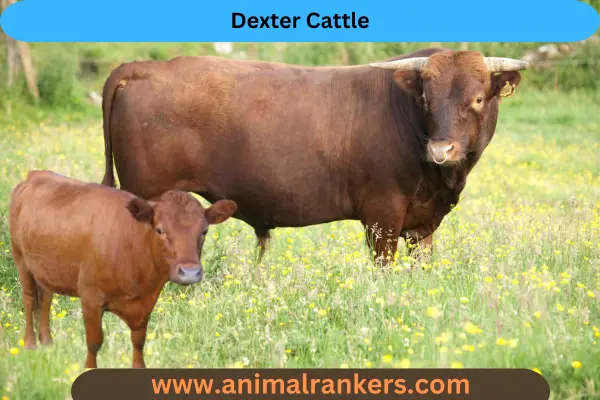
2. Jersey Cattle
Jersey cows are appreciated for their high-quality milk. They produce milk with high butterfat and protein content. Jerseys are smaller than Holsteins, with mature cows weighing around 1,000 pounds.
They are hardy, fertile, and can convert grass into milk efficiently. Jersey cattle are docile and their small stature makes them suited for management on a small farm. Jersey steers also produce high-quality lean beef.
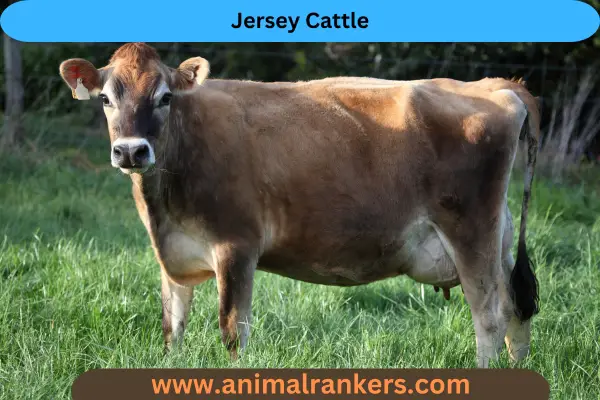
3. Devon Cattle
Devon cattle are one of the oldest English beef breeds. They are a hardy breed adapted to living on forage. Devons are medium-sized cattle with cows weighing roughly 1,100 pounds.
They are excellent grazers and perform well on grass. Devons produce tasty beef with good marbling. They have a docile temperament. Their moderate size and grazing abilities make Devons a good choice for grass-based small farms.
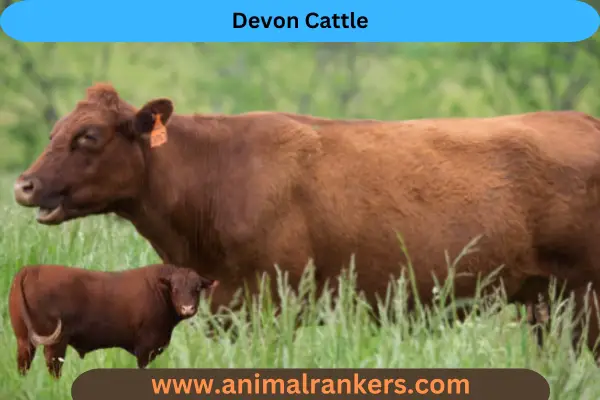
4. Highland Cattle
Highland cattle originate from the harsh conditions of the Scottish Highlands. This heritage breed is well-adapted to marginal environments and sparse forage. Highlands have long, thick coats that allow them to overwinter on pasture.
They are medium-sized cattle that efficiently convert grass into meat. Highland cows calve easily and have excellent maternal instincts. Their hardiness and self-sufficient nature are desirable traits for low-input, pasture-based small farms.
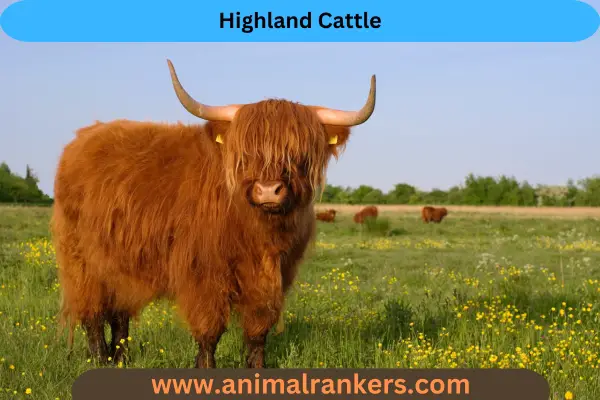
5. Hereford Cattle
Hereford cattle are hardy foragers that excel in pasture environments. They are docile and handle well in smaller farm settings. Herefords produce high-quality beef with good marbling.
Mature cows weigh roughly 1,200 pounds. Herefords are fertile cows that calve easily and have strong protective instincts. Their medium size and grazing abilities make Herefords a sensible choice for small-scale grass-fed beef operations.
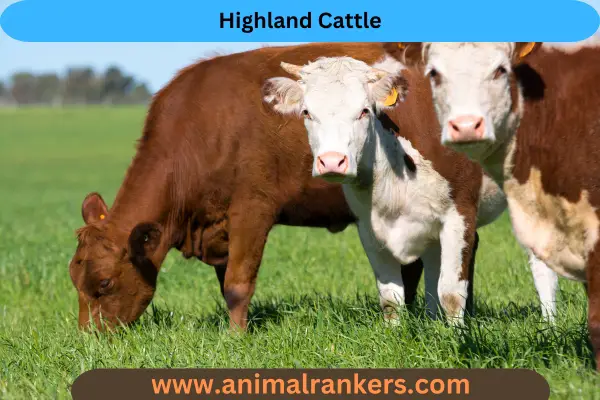
6. Australian Lowline Cattle
Australian Lowline cattle are smaller than conventional Angus but have the same black hide and meat quality. They were developed in Australia by selectively breeding small Angus cattle. Full-grown Lowline cows weigh under 1,000 pounds. Their compact size makes them easy to manage.
Lowlines produce beautifully marbled beef. Their short height also reduces sunburn and heat stress. Australian Lowlines are docile, fertile, and good mothers. Their ability to thrive on grass and smaller frames make them a nice choice for small acreages.
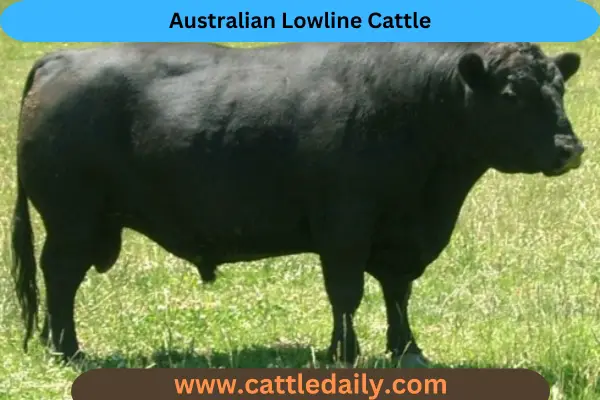
7. Belted Galloway Cattle
Belted Galloway cattle are a heritage breed originating from Scotland. They are adapted to cooler climates and grazing on poor-quality forage. Belted Galloways have a distinctive look with a white belt around their middle. They are medium-sized cattle with cows weighing roughly 1,200 pounds.
Belted Galloways are able to finish well on grass. They are hardy, laidback cattle that do well in pasture environments. Their grazing abilities and moderate size make them suitable for small farms.
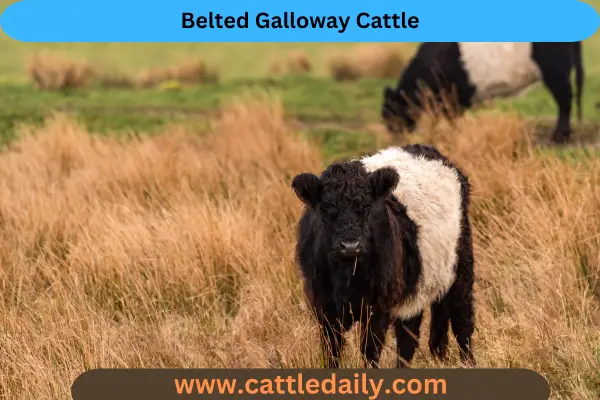
8. Guernsey Cattle
Guernsey cows are excellent grazing dairy cattle. They produce high-protein milk with a golden color due to abundant beta-carotene. Guernsey cows weigh around 1,100 pounds. They are docile, strong milking cattle. Guernseys efficiently convert grass into milk products.
Their grazing abilities and moderate size make them a viable dairy breed for management-intensive grazing on a small farm. Guernsey steers also produce good grass-fed beef. Overall, Guernseys can be a dual-purpose breed option for small-scale dairy and meat producers.
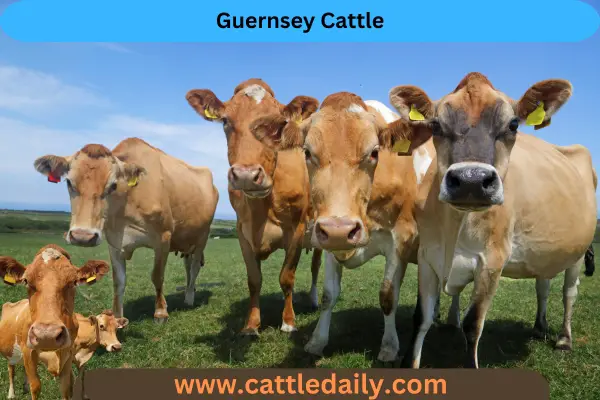
Factors to Consider When Choosing a Cattle Breed
Selecting the optimal cattle breed for a small farm involves taking several key factors into account:
Size
One of the most important considerations is the size of the breed. Smaller heritage breeds like Dexter, Jersey, and Lowline cattle take up less space and require fewer resources than larger breeds. Their compact size makes them easier to handle as well.
Purpose
The farming purpose should also guide breed choice. If milk production is the priority, then a dairy breed like Jersey or Guernsey is ideal. For generating grass-fed beef, moderate-sized breeds like Devon or Hereford are suitable.
Temperament
Cattle with a docile temperament are easier and safer to manage on a small farm. Breeds like Highland, Dexter, and Lowline are known for having calm dispositions.
Climate
The climate where the cattle will live impacts breeds selection too. Heat-tolerant breeds adapt better to hot, humid areas. In colder climates, hardy breeds like Highland or Belted Galloway that can overwinter outdoors are preferable.
Carefully evaluating size, purpose, temperament, and climate will help farmers select cattle breeds that are well-suited for the specifics of their small farm operation. Choosing the right breed is crucial for success in raising cattle on a small scale.
Conclusion:
Selecting the cattle breed that fits a small farm is an important decision that impacts productivity, management, and profitability. Smaller heritage breeds like Dexter, Jersey, and Miniature Herefords tend to be well-suited for small operations. Factors like size, dual-purpose use, temperament, and climate adaptability should be taken into account when choosing a breed.
With the right cattle breed that fits the farm, small-scale cattle farmers can sustainably produce quality milk, meat, and other products. Learn here more about farming and tips.
FAQs:
Q: What is the best cattle breed for a small farm?
A: Some top breeds for small farms include Dexter, Jersey, Lowline, Hereford, Devon, Highland, and Belted Galloway cattle. They have smaller frames, good temperaments, maternal abilities, and can convert grass to milk or meat efficiently.
Q: What is the smallest cattle breed?
A: Dexter cattle are one of the smallest breeds, with mature cows weighing under 750 pounds. Jersey and Lowline cattle are other smaller-sized breeds suited for small farms.
Q: What cattle breed has the best temperament?
A: Breeds like Dexter, Jersey, Angus, Hereford and Highland cattle are known for having docile, calm dispositions – an important trait for small farms.
Q: What is the best milk producing breed for a small farm?
A: Jersey and Guernsey cattle are excellent dairy breeds for small farms. They produce high-quality, high-protein milk while remaining a smaller size.
Q: What is the best beef cattle breed for a small farm?
A: Moderate-sized breeds like Dexter, Hereford, Devon, and Belted Galloway provide high-quality beef and have small frames suited for small-scale grass-fed beef operations.
Q: What cattle breed is the easiest to handle?
A: Heritage breeds like Dexter, Jersey, Lowline, and Miniature Herefords tend to be more docile. Their smaller size also makes them easier to maneuver than larger breeds.
Q: What breed of cattle is best for pasture grazing?
A: Breeds like Hereford, Devon, Highland, Belted Galloway, and Jersey are excellent grazers that can thrive on pasture grass.


